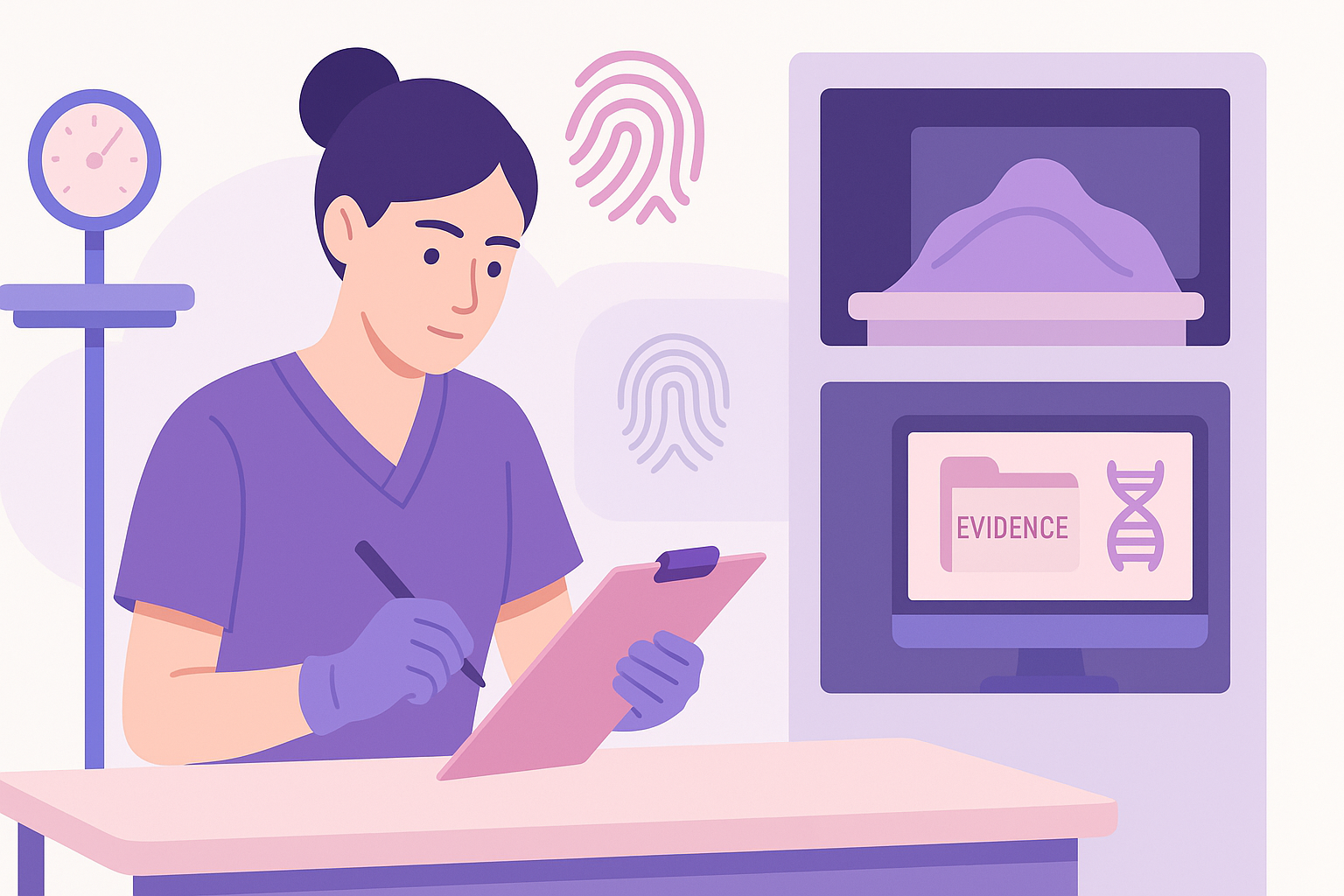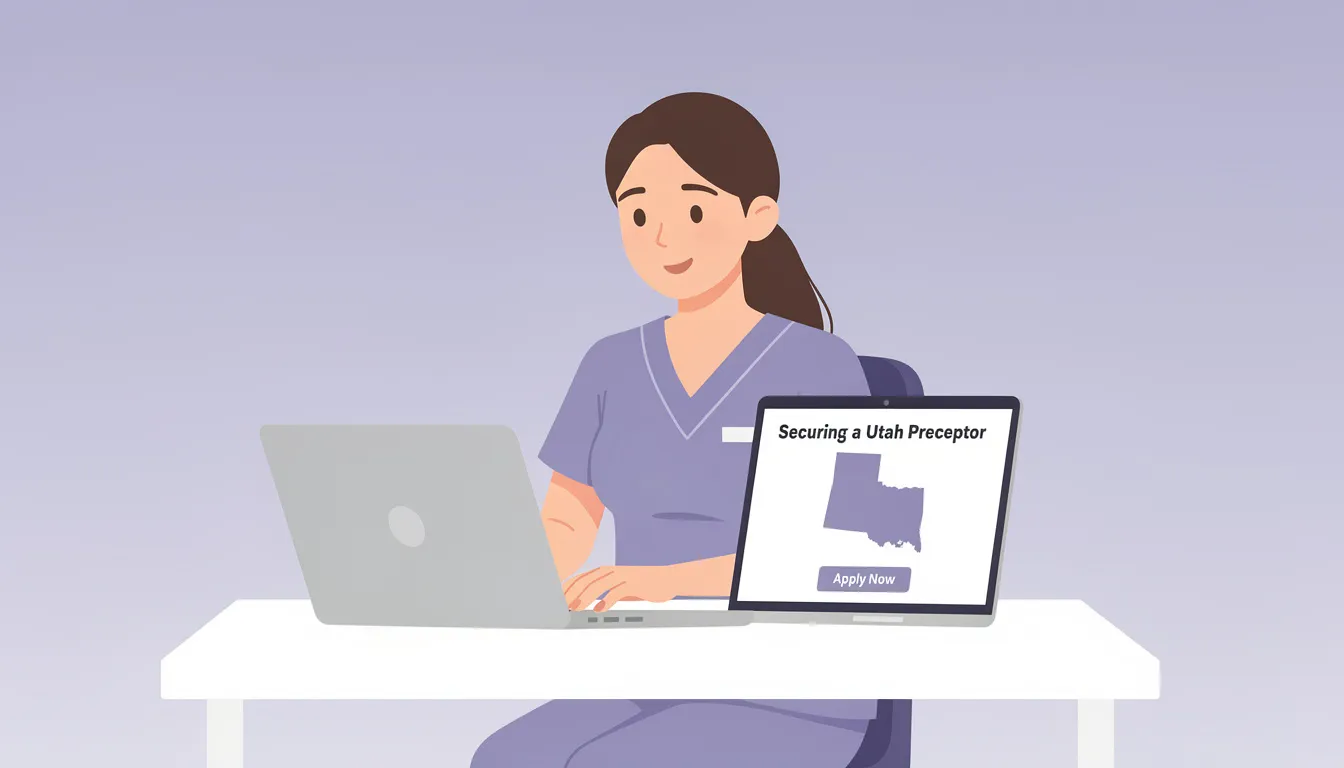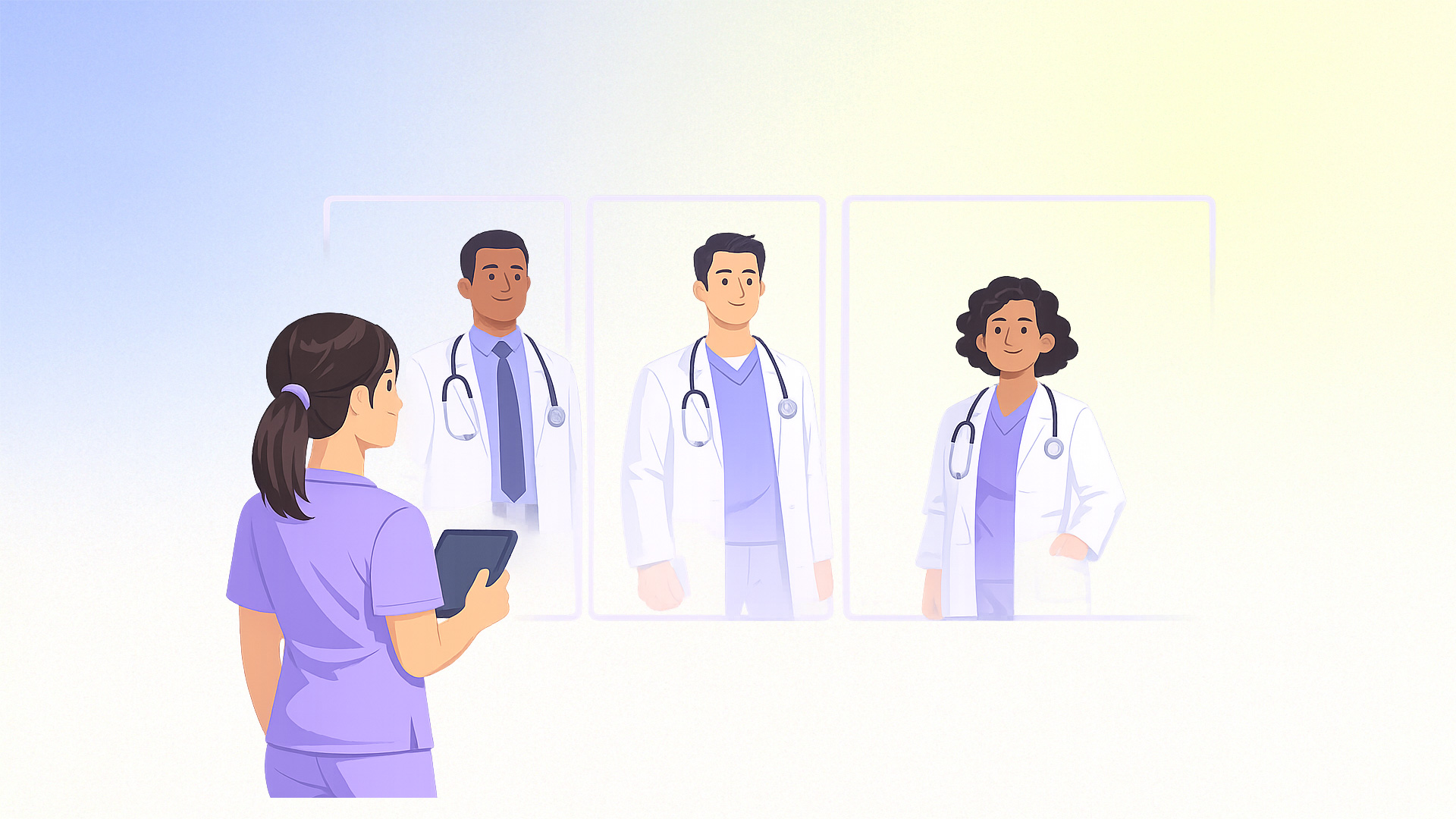Unconventional nursing jobs are career paths that take nurses beyond traditional bedside care, allowing them to use their clinical expertise in settings like technology, law, aviation, offshore rigs, or health education. These unique roles often require extra training but can offer more flexibility, higher earning potential, and opportunities to impact healthcare in creative and specialized ways.
TL;DR: 9 Unconventional & Unique Nursing Jobs That Might Interest You
- Nursing careers now go way beyond the bedside—think legal, tech, and even offshore gigs.
- Roles like nurse informaticist, auditor, and attorney offer big impact without direct patient care.
- Adventure jobs (flight nurse, cruise ship nurse, oil rig nurse) mix clinical skills with adrenaline.
- Creative nurses are thriving as writers, educators, and health coaches—flexible and fulfilling.
- Most roles need extra training, but the payoffs? More freedom, better pay, and serious career glow-up.
Why Nursing is Evolving Into Diverse and Unique Career Paths
The nursing profession now offers a diverse array of career paths that cater to various interests and skill sets. Whether you’re a seasoned registered nurse looking for a change or a nursing student exploring your options, there’s a world of unique nursing jobs waiting to be discovered.
This shift is a reflection of how the entire profession is evolving and in today’s rapidly evolving healthcare landscape, the role of nurses has expanded far beyond traditional bedside care.
Exploring new paths starts with building the right foundation. If you’re an NP student still working through clinicals, securing your preceptors is the first step. Create your free NPHub account today and keep your graduation timeline on track while you dream big about where nursing can take you.
From cannabis nurses educating patients about medical marijuana, nurse midwives providing care during pregnancy and childbirth, occupational nurses promoting employee wellness in workplaces, to public health nurses protecting community health, the variety of roles available is vast and growing.
This article delves into seven unconventional nursing jobs that showcase the versatility and importance of nurses in our healthcare system. From the high-stakes environment of emergency medical care to the cutting-edge world of healthcare informatics, these roles demonstrate how nurses are pushing the boundaries of their profession and making significant impacts in unexpected areas.
The Evolving Landscape of Nursing Careers
Before we discuss our list of unconventional nursing jobs, it’s essential to understand the context of the modern nursing profession. As healthcare advances and specializes, so do the opportunities for nurses to find their niche. Many nurses are now seeking roles that offer a change of pace from direct patient care or allow them to leverage their skills in new and exciting ways.
The nursing career path is no longer limited to hospitals and clinics. Today’s nurses can be found in courtrooms, on cruise ships, and even in the air. This diversity reflects the adaptability and crucial role that nurses play in various aspects of health and wellness. For instance, cannabis nurses educate patients about medical marijuana and its therapeutic uses, while nurse midwives provide care during pregnancy and childbirth. Occupational nurses promote employee wellness and prevent workplace injuries, and public health nurses protect and promote community health.
For nursing students or those considering a career change within the field, exploring these unique opportunities can open doors to fulfilling and often lucrative positions. Now, let’s explore seven unconventional nursing jobs that might pique your interest and inspire you to think outside the box in your nursing career.
if you are thinking about your long-term career clinical placements stress shouldn't derail the journey. With a free NPHub account, you’ll have access to verified preceptors and placement support so you can finish your program strong and start chasing the career paths that excite you most.
1. Nurse Auditor
Let's begin with something that's not so weird, but quite unknown for a lot of people. The job of the nurse auditor is mostly done in the background, where things like documentation, finance and insurance live. You would be tasked with auditing patient and hospital records to determine that everything is fine in those regards.
Nurse auditors also give financial advice to clinics and other types of healthcare businesses to help them thrive. You would need to know how to cut costs, increase profits, and keep everything running smoothly.
What do you need to become a nurse auditor? Well, aside from your RN certification, the requirements might be a little confusing at first. Some sites say that you need to do some additional study in finance, insurance, or auditing itself, while some others will tell you that you just need the experience.
The job of the Nurse Auditor also ties in with that of the nosologist, or medical records technician, which is also another curious medical profession. Want to learn more? You should get in touch with the AAPC, which issues certifications for auditors and coders in healthcare environments.
2. Forensic Nurse

This one is not really one of the most unconventional nursing jobs out there, but it is more unusual and interesting than people think. And no, the job doesn't really have to do with examining corpses. Forensic nurses collect evidence and give testimony to help victims of violent crime.
An autopsy nurse is, indeed, a type of forensic nurse. But that's just one field. Forensic nurses can specialize further to work with victims of sexual assault, domestic violence, and child abuse, to name a few.
Also, forensic nurses don't just work in hospitals, they can work in places ranging from correctional facilities to insurance companies. You'll find a lot of variety if you choose to go this way.
Head over to the International Association of Forensic Nurses to learn more about what the job entails, and how you can become one. You'll need to get a separate certification, but there are programs out there that can help you with that.
Read more: The highest paying nurse practitioner specialties
3. Cruise Ship Nurse
Okay, now we're getting a little into the more unconventional nursing jobs. We're sure that treating patients aboard a huge ship while they're on vacation (and you're not) was not the first thing you dreamed of when you went to nursing school.
However, let's examine this role. One of the good things about it is that you don't have to get any specific certification aside from your BSN. You only need experience. That gets you a chance to travel the world and treat patients for mostly minor injuries (but a heck of a lot of sea sickness).
If you don't get seasick yourself, being a cruise ship nurse might be the perfect change of scenery for you. We have to admit that the pay is not great. You'll get free meals, though!
Read more: Ebony Thyme: The Perks of Being a Travel NP and Instagram Influencer
4. Flight Nurse
These healthcare professionals, also known as transport nurses, make their living by ensuring that patients stay alive while in the air. Flight nurses don't work on commercial airlines, they ride helicopters.
This job might be one of the most challenging on this list, and with good reason. You will mostly see emergencies, and you'll have to work with very limited resources if something goes wrong.
Aside from that, you might have to learn a thing or two about the aircraft itself. Flight Nurses also get involved with this part of the job in order to provide the best level of care before, during, and after the flight.
You can become a flight nurse in three easy steps. First, get your BSN. Second, you should primarily have experience working in the ER, or in an ICU setting. Recent sources say that you would require at least 5 years of combined experience in both.
After that you have to become a Certified Flight Registered Nurse (CFRN). Here's an useful resource on that from the Board of Certification for Emergency Nursing (BCEN).
Read more: Should You Get an MBA as a Nurse Practitioner?
5. Oil Rig Nurse
This job might be number six, but it is definitely number one on the list of unconventional nursing jobs. I mean, how many oil rig nurses do you know? If you look hard enough you might find enough flight and cruise ship nurses. But an oil rig? They're on another level.
A nurse working offshore, on an oil rig, will have to provide 24-hour care for the different injuries and emergencies that oil workers have on the job. They will have to work long hours in an environment that might get a little claustrophobic. I mean, cruise ship nurses get to leave the boat, at least.
If you're a person who handles stress well, and you're looking for quite the adventure, you might enjoy trying your hand at this job. You will work independently and you'll need to make lots of decisions quickly, but you will have a more flexible schedule, such as working 2 weeks at a time with 3 weeks off. Also, the pay is apparently very good!
6. Nursing Informaticist

If you liked when we mentioned coding a few lines back, this might be the job for you. Pays well too! A Nurse informaticist implements IT solutions for a hospital or clinic, analyzing data to see how they can improve patients outcomes with technology. They also help facilities cut costs and increase the efficiency of treatment.
How do they do this? Well, they help implement new IT developments, train staff on how to use them, and analyze how effective they are. Nurses working in the field of informatics help bridge the gap between healthcare and technical advancements. Thanks to their work, hospitals and clinics can stay updated to provide the best care they can to their patients.
They might not make the news a lot, but their position is very important. There's still a lot of work to be done with electronic medical records and areas like telehealth. This job is very on-demand, and 46% of nurses in the field report having a six-figure salary, according to this survey on Nursing Informatics.
7. Nurse Navigator
People don't talk very often about nurse navigators, but they provide a very important service. Their job is to help patients to literally “navigate” the process of receiving treatment.
For example, a nurse navigator might help a patient with cancer to ease their way through their diagnosis and the options they have. They are educators and guides, and they help people make better decisions.
You will find that most nurse navigators work in oncology, but they work in other fields as well. They're teachers, liaisons, and translators. One of the most relevant aspects of the job is helping patients understand difficult medical concepts.
NPs are great candidates for nurse navigation. Head over to the Academy of Oncology Nurses and Patient Navigators to learn more about this great, but lesser-known, part of the nursing practice.
8. Nurse Writer

Among today’s unconventional nursing jobs, the role of a nurse writer is becoming increasingly popular among nursing professionals who want to transition away from direct patient care. These healthcare professionals use their clinical experience to write for healthcare facilities, healthcare organizations, and digital publications. From developing patient education materials and blog content to contributing to nursing education textbooks and continuing education modules, nurse writers help educate patients, families, and even other healthcare professionals. They also contribute to electronic medical record systems, policy proposals, and wellness content.
A background as a registered nurse is typically required, and although no additional certification is mandatory, experience in areas like wound care nursing, forensic nursing, or public health nursing can inform your writing and open up specialized niches. Many nurse educators and nurse health coaches also step into writing roles as a way to amplify their impact. As the healthcare industry continues to evolve, nurse writers are uniquely positioned to shape the conversation around medical treatment, patient care, and the role of nurses in the modern healthcare system. It’s a flexible, rewarding path for those who want to make a lasting impact outside the hospital walls.
9. Nurse Attorney
If you're looking for one of the most unique nursing jobs out there—look no further than the nurse attorney. This highly specialized role blends two demanding professions: nursing and law. Nurse attorneys are registered nurses who have gone on to earn a law degree and pass the bar exam.
Unlike legal nurse consultants, who assist with legal cases without practicing law, nurse attorneys can actively represent clients, influence health policy, and advocate in courtrooms. They often work on medical records analysis, healthcare litigation, infection control cases, malpractice lawsuits, and ethics consulting.
As a bridge between the legal and medical worlds, nurse attorneys play a vital role in protecting both patients and the rights of health professionals. They may work in hospitals, other healthcare facilities, or government agencies, and frequently collaborate with legal nurse consultants and nursing consultants.
This role is ideal for nurses employed in high-risk specialties like flight nursing, forensic nursing, or even occupational health, who want to take their understanding of complex medical care into the courtroom or policymaking space. While it’s one of the more non-traditional nursing jobs, it’s also one of the most powerful, offering a voice in how healthcare is regulated, delivered, and reformed.
Challenges and Rewards of Unconventional Nursing Careers
As nursing evolves, many healthcare professionals explore unique nursing jobs that diverge from traditional bedside roles. While these unconventional career paths offer exciting opportunities, they also come with their own set of challenges. Let’s delve into the obstacles, benefits, and real-life experiences of nurses who have ventured into these specialized roles.
Being a cannabis nurse involves educating patients about medical marijuana and its therapeutic uses, which can be rewarding as it helps patients manage their conditions more effectively. However, navigating the legal concerns related to medical marijuana can be challenging, especially as legislation continues to evolve. Nurse midwives face the rewarding experience of providing care during pregnancy and childbirth, including physical examinations and patient education, but they must also handle the stress of high-stakes situations and the need for specialized education. Occupational nurses promote employee wellness and prevent workplace injuries, offering the satisfaction of improving workplace health, yet they must address the diverse health needs of various workplace settings. Public health nurses play a crucial role in protecting community health through assessments and education, facing the challenge of addressing public health crises while working in settings like schools and government agencies.
Common Obstacles in Specialized Nursing Roles
- Adapting to New Environments: Transitioning from direct patient care to roles like forensic nursing or cruise ship nursing requires adapting to entirely new work settings. For instance, oil rig nurses must acclimate to isolated offshore environments, while flight nurses must become comfortable providing emergency medical care in high-stress aerial situations.
- Continuing Education and Certification: Many unconventional nursing jobs require additional certifications or specialized training. Legal nurse consultants, for example, often need to pursue legal education to complement their nursing expertise. This ongoing learning process can be time-consuming and financially demanding.
- Overcoming Stereotypes: Some healthcare professionals may face skepticism from colleagues who view unconventional roles as less “hands-on” or impactful. Nurse informaticists, for instance, might need to educate others about the critical role they play in improving patient care through technology.
- Navigating Uncertain Career Paths: Unlike traditional nursing roles with clear career progressions, some unconventional jobs may have less defined advancement opportunities. This can make long-term career planning more challenging. Additionally, cannabis nurses face obstacles in navigating legal concerns, nurse midwives in managing comprehensive care, occupational nurses in preventing workplace injuries, and public health nurses in addressing public health crises.
Personal and Professional Benefits of Pursuing Unique Nursing Jobs
- Intellectual Stimulation: Unconventional roles often provide continuous learning opportunities. Nurse auditors, for example, must stay updated on ever-changing healthcare regulations and financial practices.
- Work-Life Balance: Some specialized roles offer unique scheduling opportunities. Cruise ship nurses might work intensively for months, followed by extended periods off, allowing for personal travel and rejuvenation.
- Higher Earning Potential: Many unconventional nursing jobs, particularly those requiring additional certifications or education, can command higher salaries than traditional bedside nursing roles.
- Diverse Skill Development: Nurses in specialized roles often develop a broader skill set. For instance, a forensic nurse gains expertise in both healthcare and legal procedures, enhancing their overall professional versatility.
- Unique Impact on Patient Care: While some unconventional roles may not involve direct patient interaction, they often significantly impact overall healthcare quality. Nurse informaticists, for example, improve patient care by optimizing healthcare technology systems. Additionally, being a cannabis nurse offers the benefit of educating patients about medical marijuana and its therapeutic uses, while a nurse midwife provides comprehensive care during pregnancy and childbirth. Occupational nurses promote employee wellness and prevent workplace injuries, and public health nurses have a significant impact on community health.
- Global Opportunities: Roles like flight nursing or cruise ship nursing offer the chance to work internationally, providing exposure to diverse healthcare systems and cultures.
Conclusion:
As we’ve explored these seven unconventional nursing jobs, it’s clear that the nursing profession has evolved far beyond traditional bedside roles. From the high-tech world of nursing informatics to the adventurous life of cruise ship nurses, these unique nursing opportunities showcase the versatility and adaptability of modern healthcare professionals.
It’s important to recognize that these unconventional roles are not just career alternatives but essential components of a comprehensive healthcare system. Roles such as cannabis nurses, nurse midwives, occupational nurses, and public health nurses further exemplify the diverse and impactful opportunities within the nursing field.
For nursing students and experienced registered nurses, these unique nursing jobs offer opportunities for professional growth, intellectual stimulation, and, often, improved work-life balance. While they may require additional education, certifications, or specialized training – such as becoming a legal nurse consultant or an infection control nurse – the rewards can be significant, both personally and financially.
As healthcare evolves, we expect to see more unusual nursing jobs emerge. The future holds exciting possibilities for those willing to explore non-traditional nursing paths, from telemedicine specialists to genetic counseling nurses.
For those considering transitioning to one of these unconventional nursing jobs, it’s important to research thoroughly and perhaps connect with nurses already working in these fields.
In conclusion, the world of nursing is vast and varied, offering opportunities far beyond what many might initially envision when entering nursing school. Whether you’re providing emergency medical care at 30,000 feet, ensuring patient safety through meticulous auditing, or educating patients about holistic health approaches, your nursing skills and compassion remain at the core of your practice.
Whether you dream of working offshore, in the courtroom, or with data systems that change healthcare, your NP journey begins with clinical experience. Don’t let preceptor challenges hold you back. Create your free NPHub account today and explore open rotations that fit your path forward.
Frequently Asked Questions
1. How do salaries for unconventional nursing jobs compare to traditional nursing roles?
Salaries for unconventional nursing jobs can vary widely depending on the specific role, location, and level of expertise required. Some specialized positions, such as nurse informaticists or legal nurse consultants, often command higher salaries than traditional bedside nursing roles. For instance, many nurse informaticists report six-figure salaries. However, other roles like cruise ship nursing might offer lower base pay but include additional perks like free room and board. It's important to research each specific role and consider the total compensation package, including benefits and unique opportunities, when comparing salaries.
2. What non-bedside nursing jobs are available for those who want to move away from direct patient care?
There are numerous non-bedside nursing jobs available for nurses seeking a change from direct patient care. Some options include:
- Nurse educator roles in academic settings or healthcare facilities
- Public health nurses focusing on community health initiatives
- Health policy nurses working in government or advocacy organizations
- Nurse researchers contributing to medical advancements
- Occupational health nurses in corporate settings
- Telemedicine nurses providing remote patient care
These roles allow nurses to leverage their clinical knowledge and skills in diverse settings while moving away from traditional bedside care.
3. Are there any emerging or unusual nursing specialties that aren't widely known yet?
Yes, several emerging and unusual nursing specialties are gaining recognition:
- Nurse Health Coaches
- Occupational health nurses in corporate settings
- Wound care nurses focusing exclusively on complex wound management
- Parish nurses combining spiritual care with health promotion in faith communities
These specialties reflect how nursing skills can be applied in various healthcare and community settings.
4. How can I transition from a traditional nursing role to one of these unconventional nursing jobs?
Transitioning to an unconventional nursing job often involves the following steps:
- Research the specific role you're interested in to understand its requirements.
- Gain relevant experience in your current position that aligns with the new role.
- Pursue additional education or certifications if required (e.g., a master's degree or specialized training).
- Network with professionals already working in the field through professional organizations or LinkedIn.
- Look for entry-level or transitional positions that can serve as a bridge to your desired role.
- Consider volunteering or shadowing in the new specialty to gain experience and make connections.
Remember, many skills from traditional nursing, such as critical thinking and patient communication, are also valuable in unconventional roles.
5. How do these unconventional nursing roles impact the healthcare system?
Unconventional nursing roles play a crucial part in enhancing the overall healthcare system in several ways:
- Improving patient outcomes: Roles like nurse navigators help patients better understand and manage their care, leading to improved health outcomes.
- Enhancing efficiency: Nurse informaticists optimize healthcare technology and electronic medical record systems, streamlining processes and reducing errors.
- Expanding access to care: Telemedicine nurses and cruise ship nurses provide medical services in non-traditional settings, increasing access to healthcare.
- Advancing medical knowledge: Nurse researchers contribute to the development of new treatments and care protocols.
- Promoting public health: Public health nurses and nurse health coaches focus on preventive care and community wellness, reducing the burden on acute care services.
- Ensuring patient safety: Infection control nurses and nurse auditors work to maintain high standards of care and regulatory compliance.
By filling these specialized roles, nurses contribute to a more comprehensive, efficient, and effective healthcare system that extends far beyond traditional hospital and clinic settings.
Read more: How nurses can become better patient educators
Key Terms
- Unconventional Nursing Job
A role that falls outside the traditional hospital or clinic setting, often involving specialized environments or unique skills. - Nurse Auditor
A nurse who reviews healthcare records and billing to ensure accuracy and compliance. - Forensic Nurse
A nurse trained to handle cases involving trauma, abuse, or crime, collecting evidence and supporting investigations. - Cruise Ship Nurse
A nurse who provides medical care to passengers and crew on cruise ships, often handling minor injuries and illnesses. - Flight Nurse
A nurse who delivers emergency medical care to patients being transported via air, typically in helicopters. - Oil Rig Nurse
A nurse who provides 24/7 care to workers on offshore oil rigs, often in isolated and high-risk environments. - Nursing Informaticist
A nurse who integrates nursing science with information management to improve healthcare systems and outcomes. - Nurse Navigator
A nurse who guides patients through complex medical processes, particularly in specialties like oncology. - Nurse Attorney
A licensed nurse who is also a lawyer, providing legal expertise in medical litigation, policy, and ethics.
About the author
NPHub Staff
At NPHub, we live and breathe clinical placements. Our team is made up of nurse practitioners, clinical coordinators, placement advisors, and former students who’ve been through the process themselves. We work directly with NP students across the country to help them secure high-quality preceptorships and graduate on time with confidence.
- Last updated
Nov 12, 2025 - Fact-checked by
NPHub Clinical Placement Experts & Student Support Team - Sources and references
- https://forensicnurses.org/
- https://nphub.com/blog/highest-paid-nurse-practitioner-specialties
- https://nphub.com/blog/ebony-thyme-travel-nurse-practitioner-instagram-influencer-interview
- https://bcen.org/cfrn
- https://himss.org/resources/himss-nursing-informatics-workforce-survey
- https://aonnonline.org/
- https://nphub.com/blog/nurses-are-leaving-the-bedside-is-it-because-of-self-care-issues/
- https://www.nphub.com/blog/legal-nurse-consultant-nurse-practitioner-guide
Find a preceptor who cares with NPHub
Book a rotation.webp)








.webp)


.webp)



%20(3)%20(2).svg)
.webp)